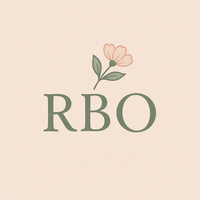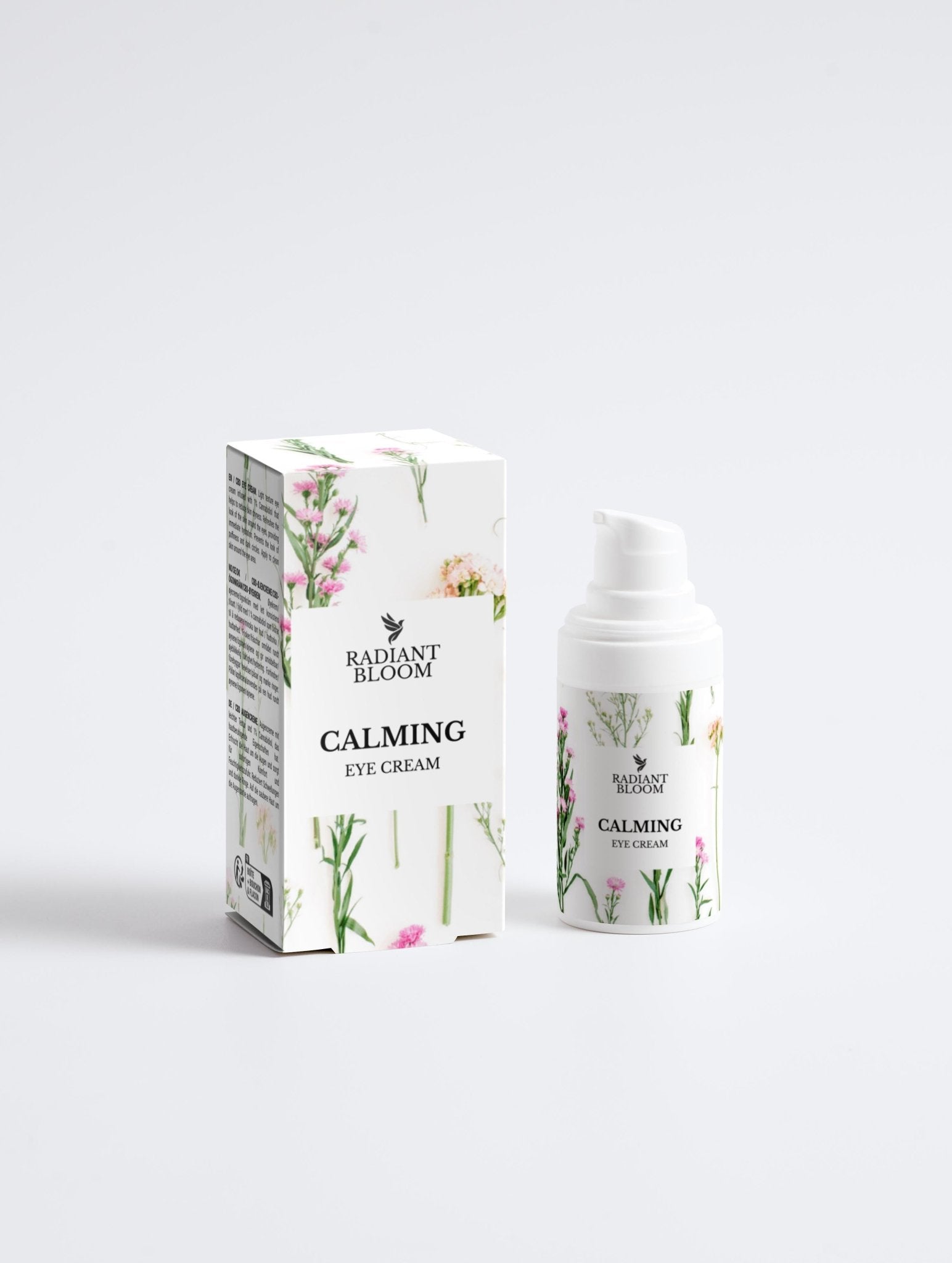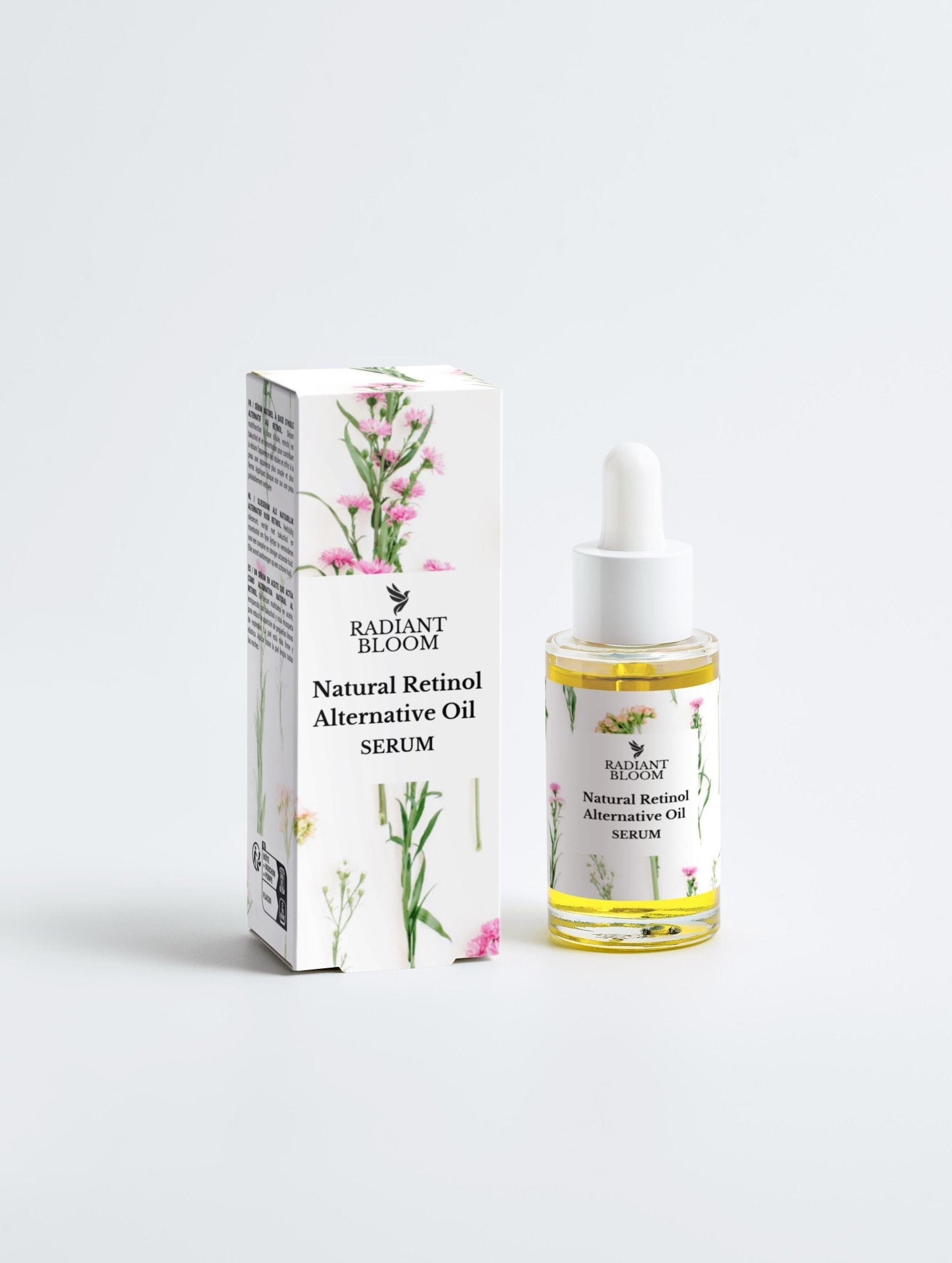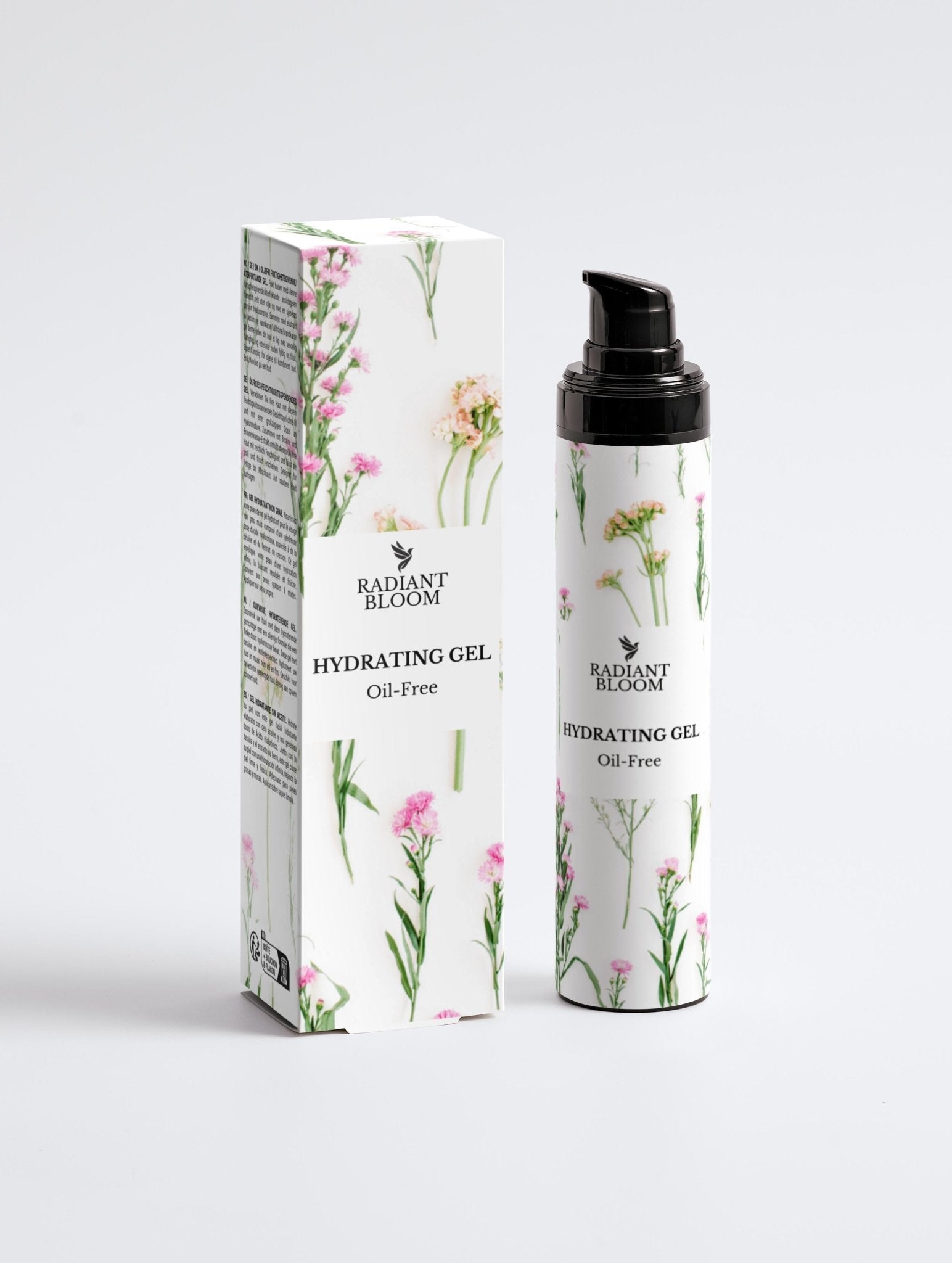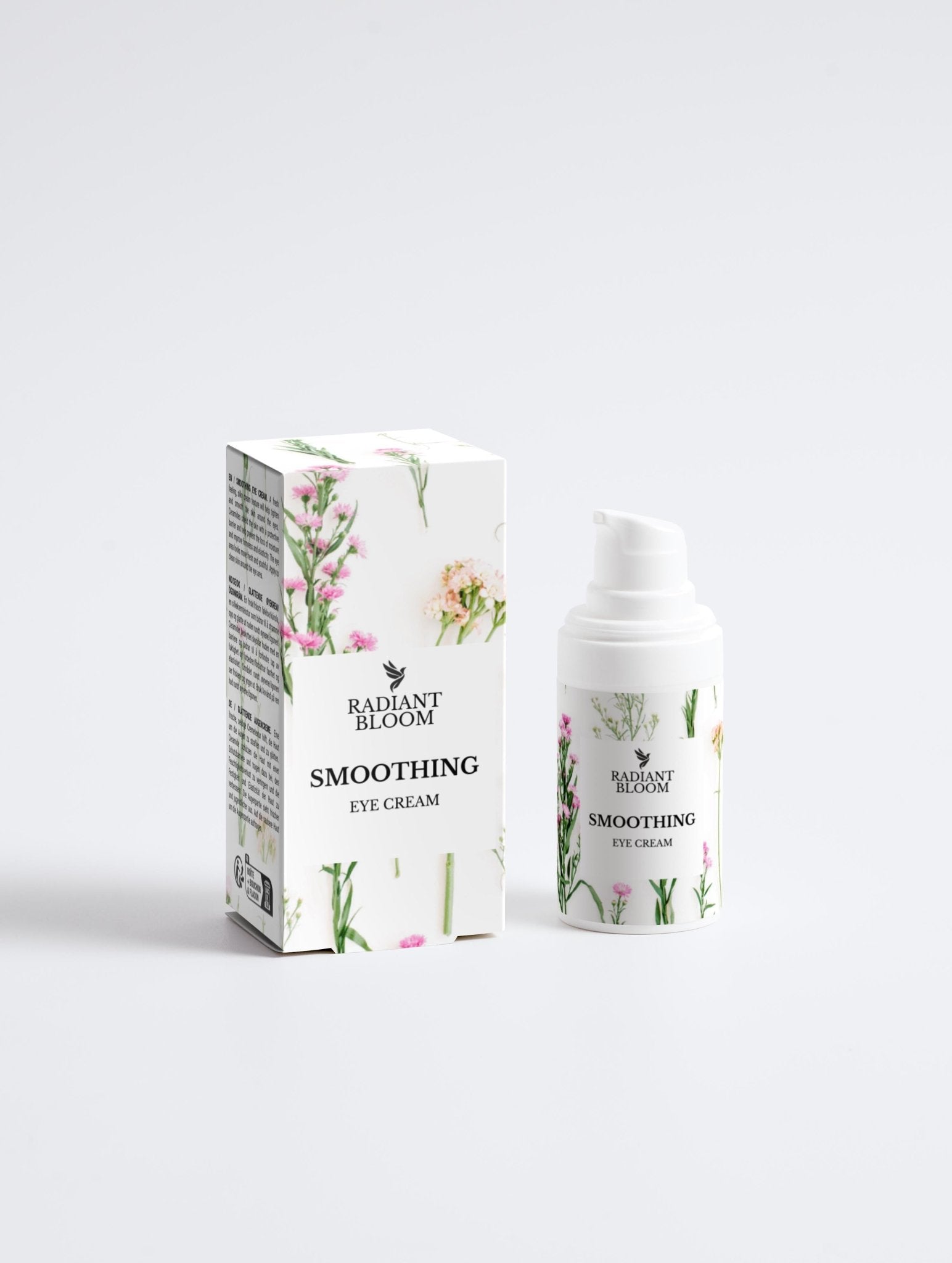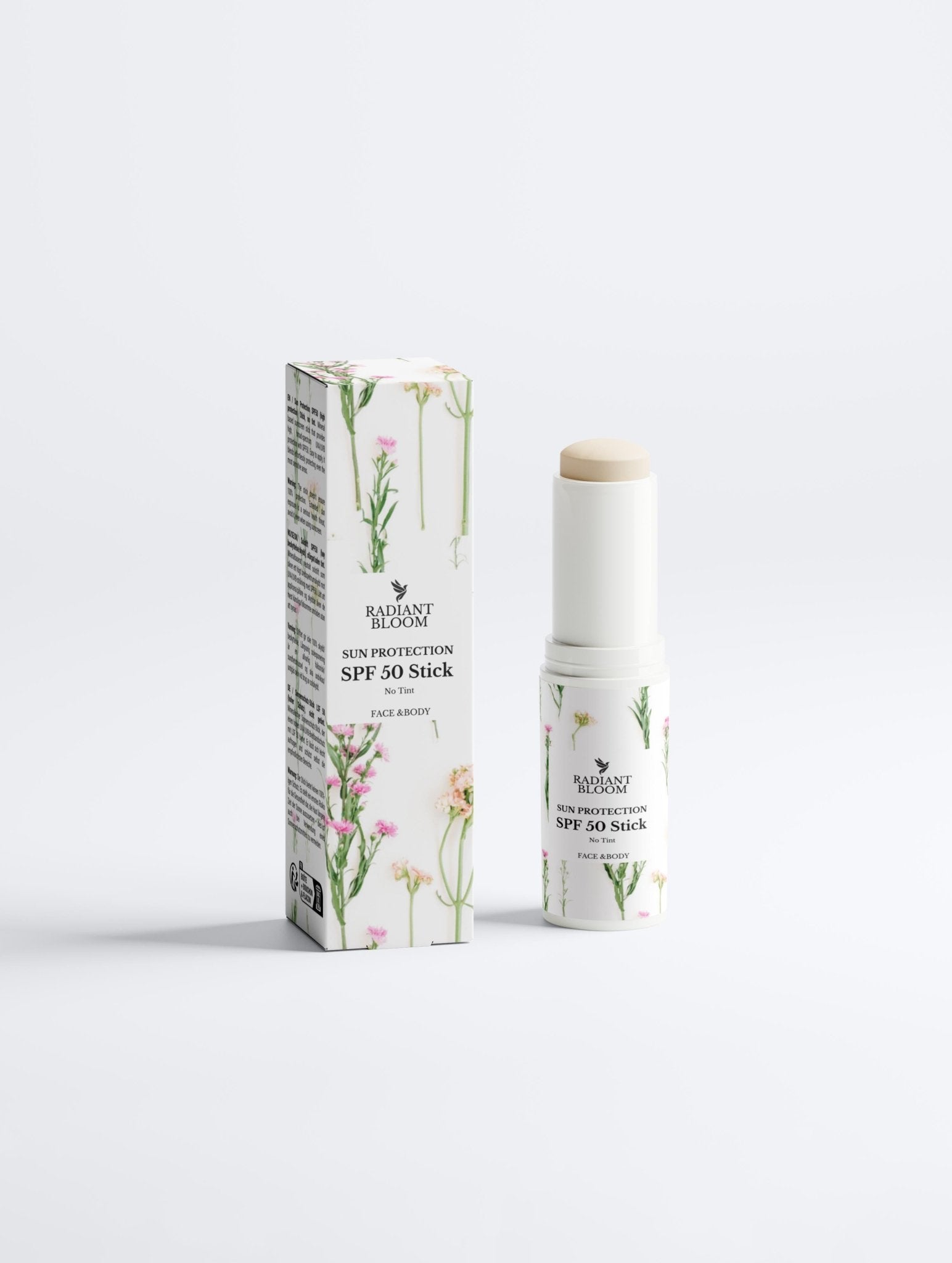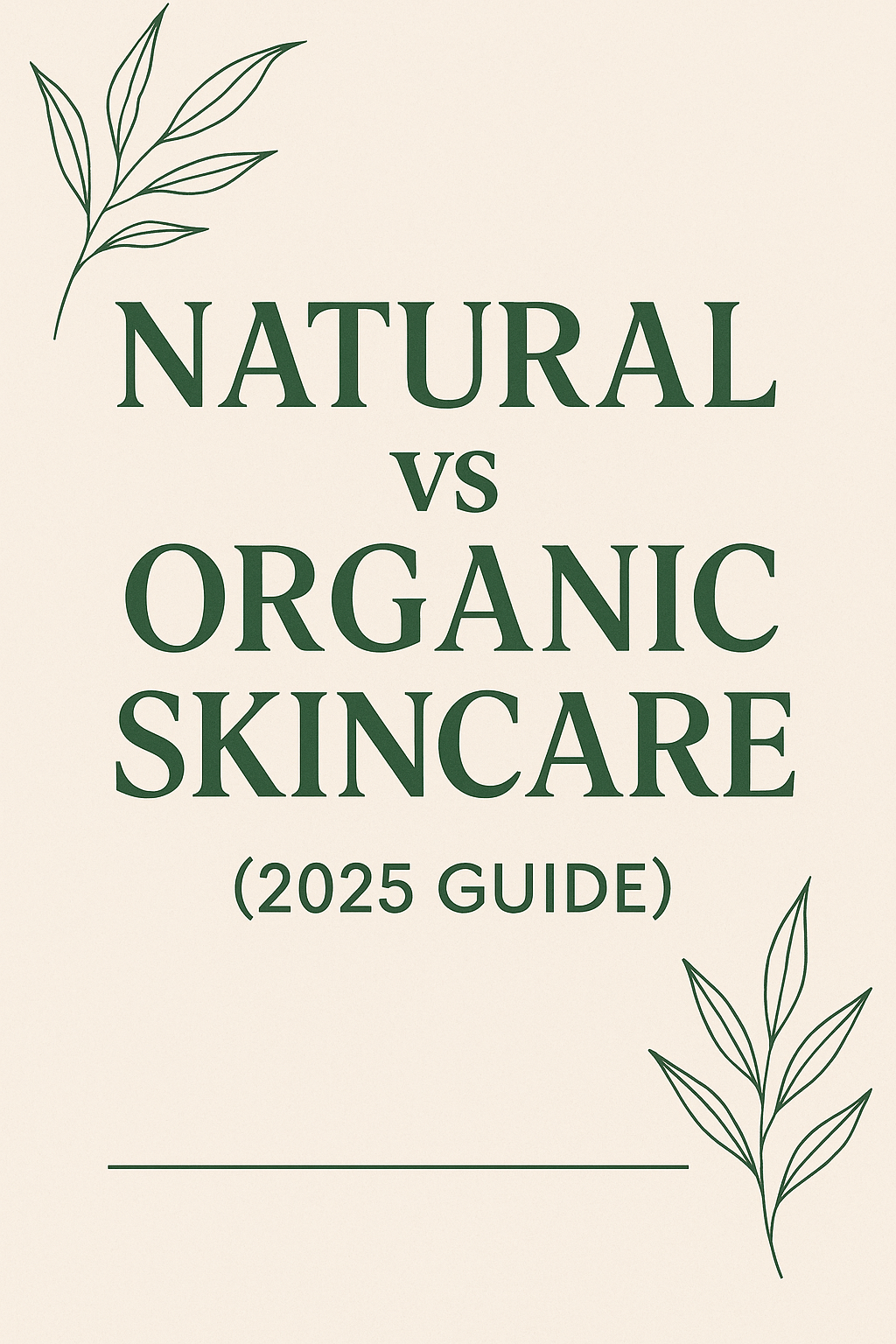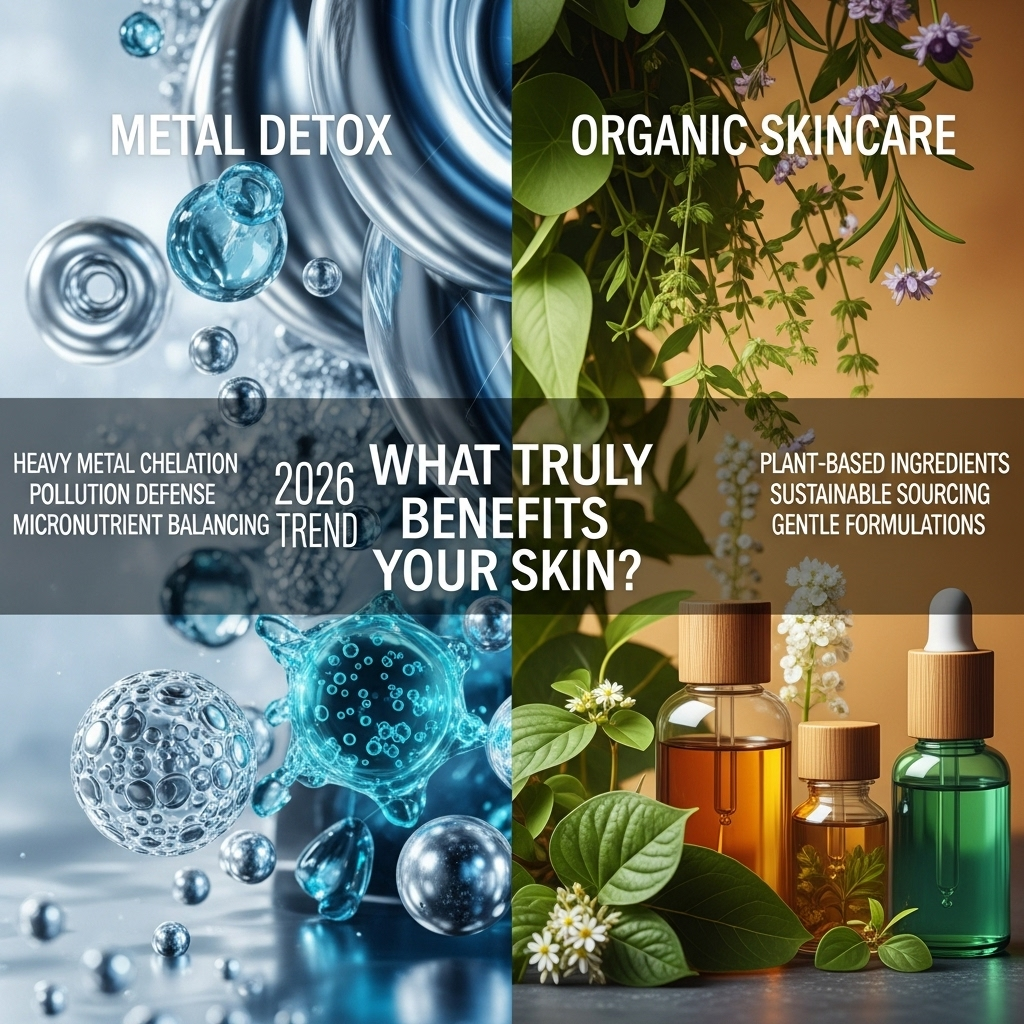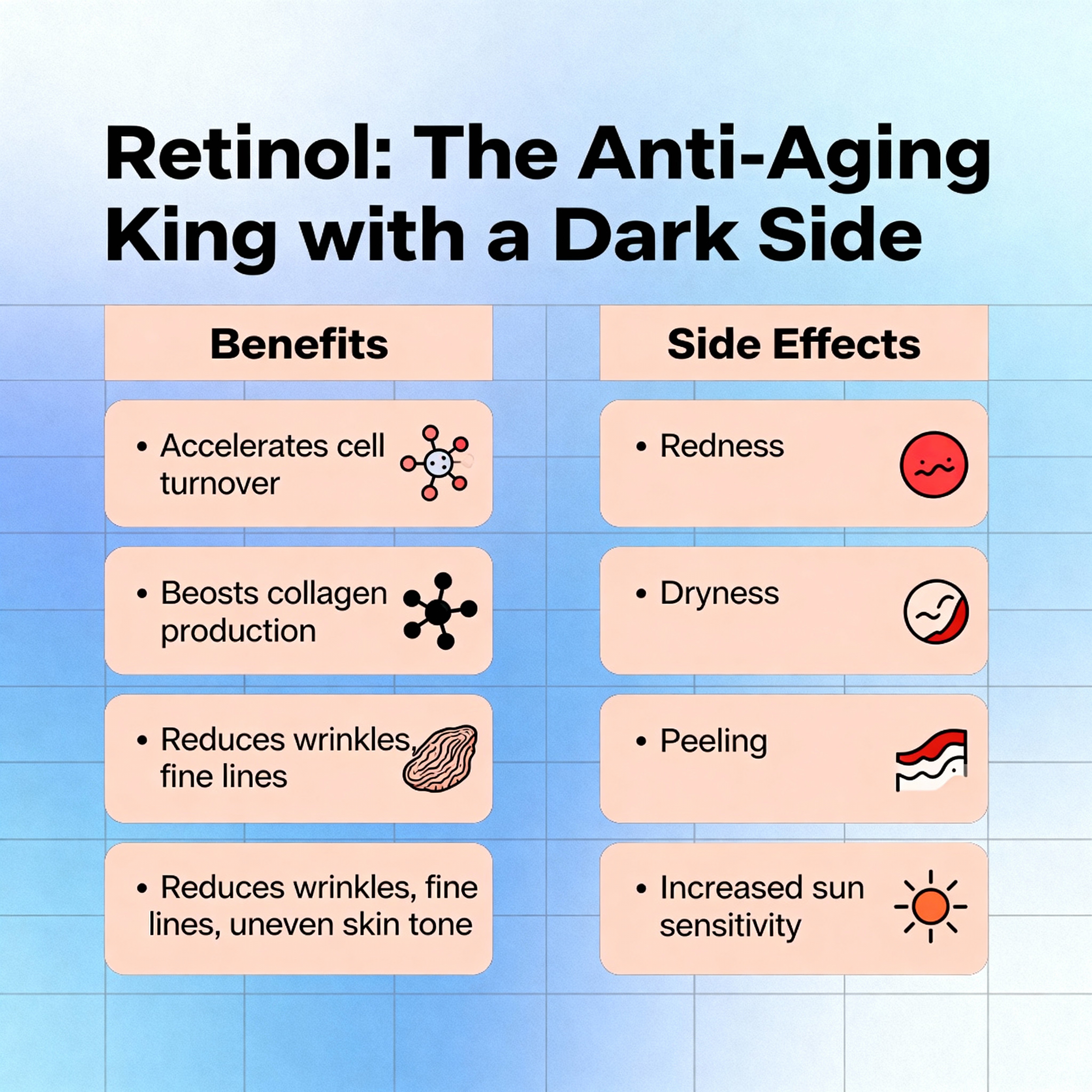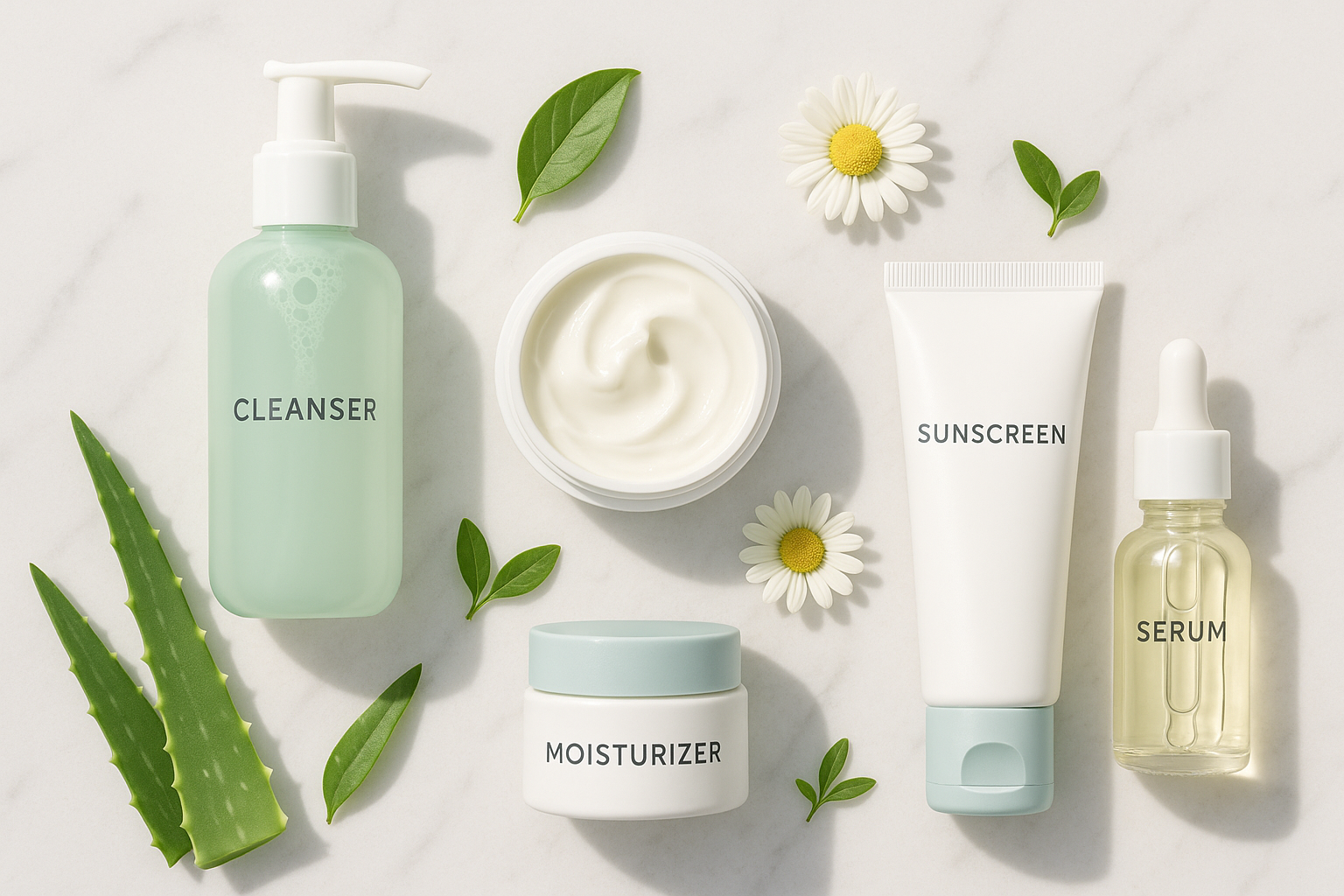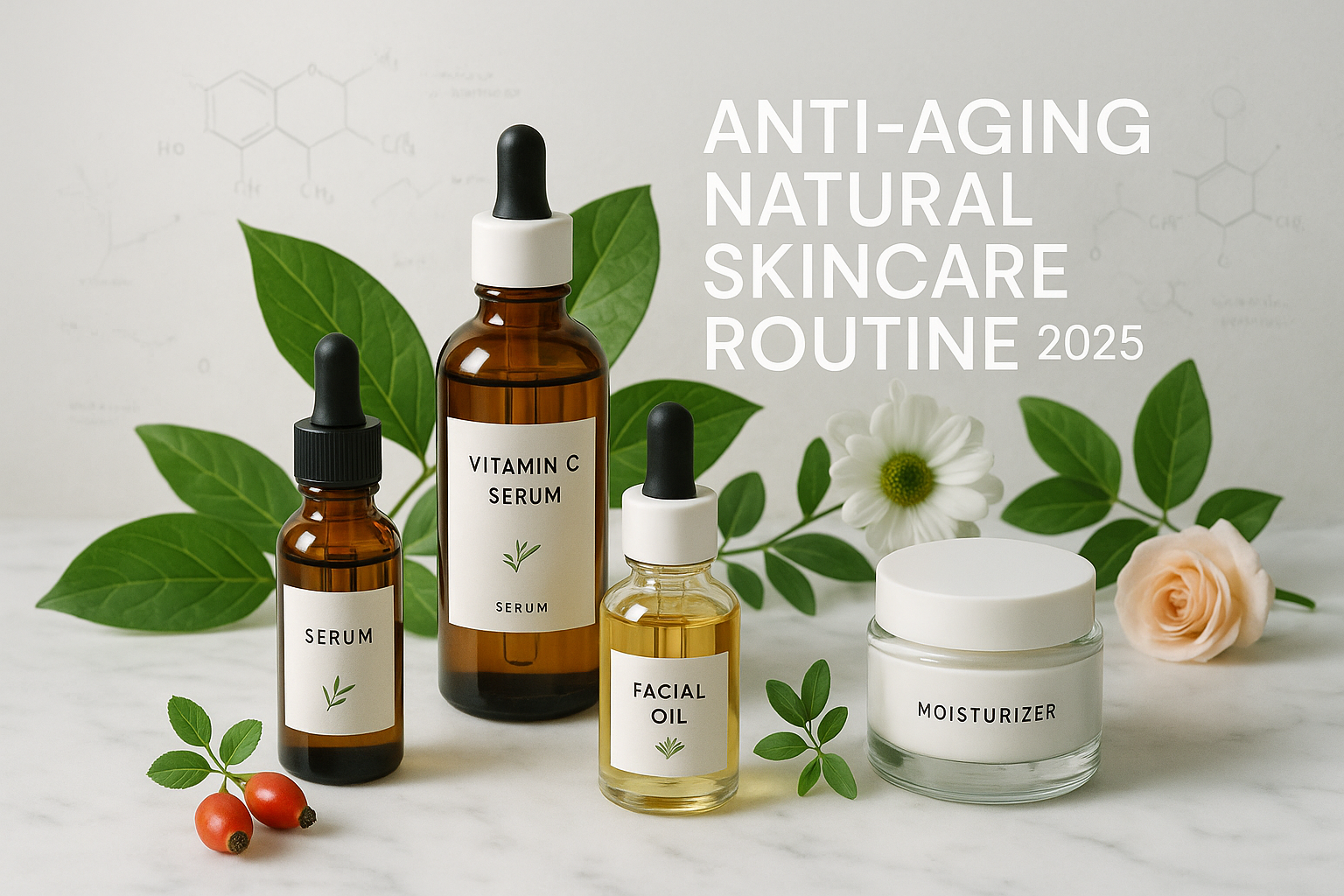Last Updated: September 2025 · 12 min read
Understanding Natural Skincare
Natural skincare has exploded in popularity, with the global market reaching $13.2 billion in 2024. But what exactly qualifies as natural skincare?
What is Natural Skincare?
Natural skincare products primarily use ingredients derived from plants, minerals, and other naturally occurring substances. These include:
- Plant extracts and essential oils
- Natural butters (shea, cocoa, mango)
- Mineral-based ingredients
- Naturally-derived vitamins
- Plant-based preservatives
Important: natural isn't a regulated term. Brands can claim natural even if formulas include synthetic preservatives or fragrances.
The Natural Skincare Spectrum
- Naturally-Inspired (70–80% natural): Mostly natural with some synthetics
- Natural (85–95% natural): Predominantly natural, minimal synthetics
- All-Natural (95–99% natural): Nearly all natural ingredients
- 100% Natural (100%): No synthetics
At Radiant Bloom Organic, we go beyond 100% natural—our hero products are certified organic for maximum purity.
What Makes Skincare Truly Organic?
Organic skincare is the gold standard in clean beauty. Unlike natural, organic is a tightly regulated certification with rigorous standards.
Organic Skincare Certification Requirements
- 95%+ organic agricultural ingredients (excluding water and salt)
- No GMOs or synthetic pesticides
- No irradiation; strict processing to protect ingredient integrity
- Annual third-party inspections of facilities
Types of Organic Certifications
| Certification | Organic Content Required | Additional Requirements |
|---|---|---|
| USDA Organic | 95% | No GMOs, restricted synthetics |
| COSMOS Organic | 95% (20% of total product) | Environmental criteria; green chemistry |
| Soil Association | 95% | Ethical sourcing standards |
| ECOCERT | 95% | Lifecycle focus on sustainability |
Our Glow & Hydrate Facial Oil meets strict eco-certified standards with 100% organic oils.
Natural vs Organic: Key Differences
Side-by-Side Comparison
| Aspect | Natural Skincare | Organic Skincare |
|---|---|---|
| Regulation | Unstandardized | Strictly certified |
| Ingredient Source | Nature-derived | Certified organic farms |
| Synthetics | Allowed in small amounts | Prohibited/restricted |
| Pesticide Residue | Possible | Not permitted |
| GMOs | May be present | Prohibited |
| Processing | Varies widely | Limited to preserve purity |
| Environmental Impact | Varies | Sustainability prioritized |
| Price | $–$$ | $$–$$$ |
| Efficacy | Good | Excellent (potent actives) |
The Purity Difference
Example: a natural rosehip oil may include 95% oil + 3% synthetic preservative + 2% fragrance. An organic rosehip oil is 100% certified organic oil and nothing else. More purity usually means more predictable results and fewer irritants.
Benefits of Choosing Organic Skincare
1) Higher Nutrient Concentration
- Organic botanicals tend to deliver robust antioxidant profiles
- Often higher vitamin content (e.g., vitamin C, E)
- Rich in phytochemicals that support skin repair
2) No Harmful Chemical Residues
Organic certification removes the concern of residual pesticides, certain synthetic fertilizers, and GMO traces.
3) Better for Sensitive Skin
Fewer synthetic fragrances and dyes mean gentler formulas. Try our Velvety Texture Face Cream built for delicate skin.
4) Environmental Sustainability
- Supports biodiversity and healthy soils
- Helps reduce waterway pollution
- Encourages carbon-sequestering farming practices
5) Enhanced Efficacy
Cleaner inputs and careful processing can help actives remain more bioavailable to the skin.
How to Read Skincare Labels
Red Flag Ingredients to Consider Avoiding
- Parabens (methyl-, propyl-)
- Sulfates (SLS, SLES)
- "Fragrance"/"Parfum" (undisclosed mixtures)
- Phthalates (DBP, DEHP, DEP)
- Formaldehyde releasers (DMDM hydantoin, quaternium-15)
Green-Light Ingredients
- Aloe vera* (soothing humectant)
- Jojoba oil* (barrier-friendly emollient)
- Rosehip seed oil* (pro-vitamin A, brightening)
- Green tea extract* (antioxidant)
- Chamomile extract* (calming)
*Indicates organic certification
Label Positioning Matters
- First 5 ingredients = bulk of the formula
- After preservatives = typically <1%
- End of list = trace amounts
Building Your Natural Skincare Routine
Consistency beats complexity. Build a simple routine with organic products and stick to it.
Morning Routine (5 Steps)
- Gentle Cleanser: remove overnight buildup (cream/gel)
- Toner/Essence: balance pH; organic rose water works well
- Serum: target a concern — see Radiant Bloom serums
- Moisturizer: hydrate and protect — try Velvety Texture Face Cream
- SPF: mineral sunscreen with zinc oxide (¼ tsp for face)
Evening Routine (6 Steps)
- Oil Cleanser: first cleanse — Glow & Hydrate Facial Oil
- Water-Based Cleanser: to finish
- Exfoliant (2–3×/week): enzyme or AHA
- Toner: rebalance - Toner
- Treatment Serum: repair/regenerate - Serum
- Night Cream/Oil: deep nourishment - Night Cream/Oil
Order rules: thinnest → thickest, water-based → oil-based, treatment → protection.
Best Organic Skincare Ingredients
For Anti-Aging
- Rosehip Oil: pro-vitamin A; supports cell turnover
- Argan Oil: vitamin E; elasticity
- Green Tea: antioxidant defense
- Pomegranate: supports collagen
For Acne-Prone Skin
- Tea Tree: antimicrobial
- Willow Bark: natural salicylic source
- Neem: calms inflammation
- Witch Hazel: refines look of pores
For Dry/Sensitive Skin
- Calendula: soothes
- Chamomile: reduces redness
- Oat Extract: barrier support
- Shea Butter: deep moisture
For Brightening
- Vitamin C (Kakadu plum): tone and radiance
- Licorice Root: evens discoloration
- Kojic Acid (mushrooms): helps dark spots
- Turmeric: glow booster
Find these in our 100% natural, vegan, eco-certified collection.
Common Misconceptions
Myth 1: Natural means hypoallergenic
Reality: naturals can still trigger reactions. Patch test new products.
Myth 2: Organic products don't work as well
Reality: high-quality organics often deliver excellent results thanks to potent actives and cleaner carriers.
Myth 3: Natural products don't need preservatives
Reality: water-based products need preservation. Many organic systems use nature-identical or plant-based options.
Myth 4: All chemicals are bad
Reality: everything is chemistry, including water. Focus on safety, dose, and evidence.
Myth 5: Organic skincare expires faster
Reality: shelf life can be shorter (often 12–24 months). Store cool and dark to maintain potency.
Making the Switch
Week 1–2: Cleanser + Moisturizer
- Swap your cleanser and moisturizer for organic versions
- Track skin response
Week 3–4: Add Treatments
- Introduce a targeted organic serum
- Add a gentle, alcohol-free toner
- Consider Radiant Bloom treatment oils
Week 5–6: Complete the Routine
- Replace remaining conventional products
- Add weekly masks or exfoliants
- Lock in your AM/PM cadence
Transition Tips
✅ Introduce gradually · Patch test · Give 4–6 weeks · Store properly
❌ Don't switch everything at once · Don't stack too many actives · Don't expect overnight miracles
Why Choose Radiant Bloom Organic?
Our Commitments
- 100% natural inputs; certified organic hero products
- Eco-certified, vegan, and cruelty-free
- Science-backed formulations at effective concentrations
- Money-back guarantee
Customer Results
- "My sensitive skin has never been calmer." — Sarah, verified buyer
- "Glow & Hydrate transformed my dry skin." — Michael, verified buyer
- "Finally, skincare that actually delivers." — Jennifer, verified buyer
Featured Products
For Dry Skin: Velvety Texture Face Cream — ultra-rich, barrier-supporting hydration.
For All Skin Types: Glow & Hydrate Facial Oil — lightweight, radiance-boosting botanicals.
For Dull Skin: Caffeine-Infused Treatment — visibly energizes and brightens.
Frequently Asked Questions
Is organic skincare worth the higher price?
Yes—you're paying for cleaner sourcing, tighter standards, and typically more concentrated actives. Think of it as long-term skin health, not a quick fix.
Can I mix natural and organic products?
Absolutely. Prioritize organic for leave-ons (serums, moisturizers, oils, SPF). If budget is tight, use natural for rinse-offs (cleansers).
How long before I see results from organic skincare?
Texture often improves in ~2 weeks; more visible changes arrive in 4–6 weeks of consistent use.
Are all organic skincare brands the same?
No. Check for third-party certifications (e.g., COSMOS/ECOCERT/USDA), full ingredient transparency, and real concentrations of actives. With Radiant Bloom Organic, you get eco-certified formulas, clear labels, and evidence-led percentages - so you know exactly what's doing the work.
This article is for educational purposes only and is not medical advice.
